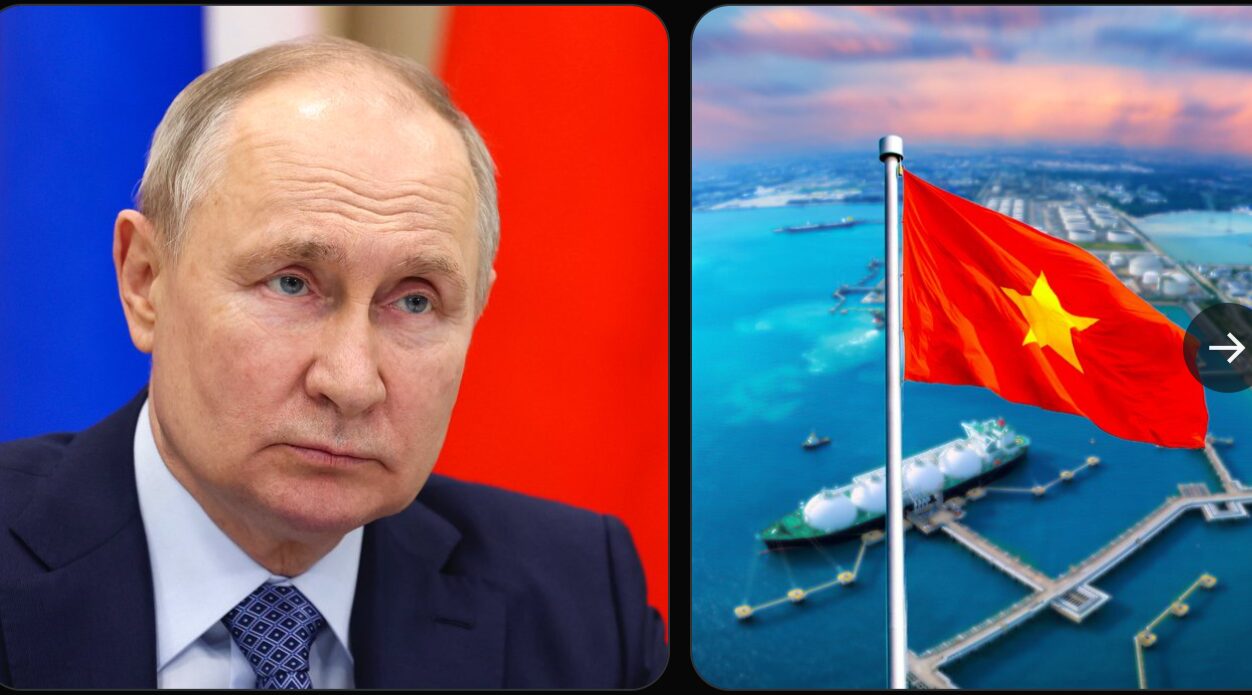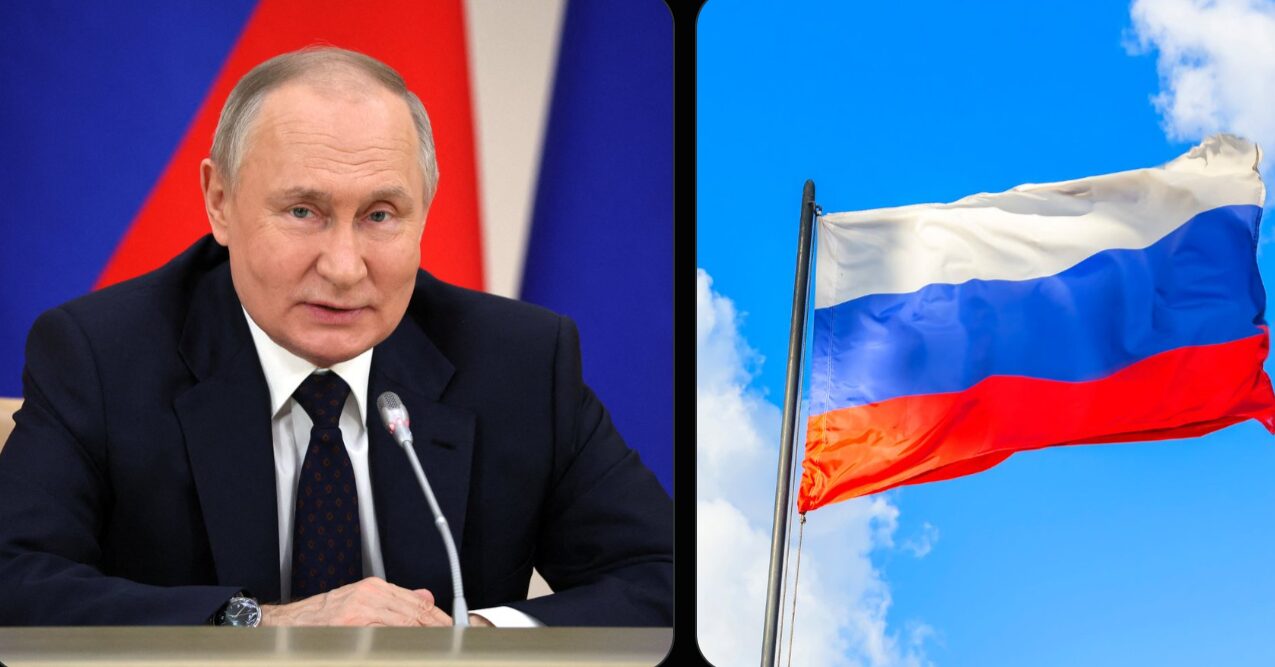Russia to supply OIL & LNG to VIETNAM
In a significant development in global energy markets, Russia has announced its decision to supply oil and liquefied natural gas (LNG) to Vietnam, marking a new chapter in energy cooperation between the two nations. This deal has garnered international attention as both countries look to strengthen their economic and strategic ties amidst the growing volatility in global energy markets and shifting geopolitical dynamics. The move highlights Russia’s broader strategy of diversifying its energy export markets, especially in light of Western sanctions and the ongoing energy crisis sparked by the war in Ukraine. For Vietnam, the agreement represents an opportunity to secure energy supplies and boost its economic growth as it continues to industrialize and expand its energy infrastructure.
The Energy Deal: What It Means for Both Countries
The new energy deal between Russia and Vietnam focuses on the supply of oil and LNG, two crucial energy resources that are pivotal to Vietnam’s growing economy. As Vietnam continues to modernize its infrastructure and industries, the need for reliable and affordable energy supplies has never been more urgent. Russia, on the other hand, is eager to find new markets for its energy exports after facing significant challenges in its traditional markets in Europe due to sanctions imposed in the wake of the Ukraine conflict.
The agreement includes not only the supply of oil and LNG but also the potential for long-term cooperation in the energy sector, including joint ventures in exploration, production, and infrastructure development. This collaboration could see Russian companies assisting Vietnam in expanding its energy capacity and modernizing its energy infrastructure, helping the Southeast Asian nation meet its growing demand for power while ensuring that it has a steady and diversified supply of oil and gas.
For Russia, the deal represents a shift in focus toward Asia, as it seeks to reorient its energy exports away from Europe and toward emerging markets in the region. Vietnam, with its rapidly expanding economy and growing energy needs, is an ideal partner for Russia in this regard. The deal is also seen as part of Russia’s broader strategy to strengthen its relations with countries that are not aligned with the West, offering an alternative to Western energy suppliers.
The Geopolitical Implications of the Energy Deal
The deal between Russia and Vietnam has significant geopolitical implications, particularly in the context of the broader competition for energy resources in Asia. Vietnam’s decision to engage with Russia on energy supplies comes at a time when countries in the Asia-Pacific region are increasingly looking for stable and reliable energy sources to fuel their growth. Vietnam, as one of Southeast Asia’s fastest-growing economies, is an important player in this energy competition, and its decision to secure oil and LNG from Russia will undoubtedly affect its relationships with other energy suppliers, such as the United States, the Middle East, and regional neighbors like China.
For Russia, the deal offers an opportunity to increase its influence in Asia and strengthen ties with countries that are more resistant to Western pressure. In particular, the agreement signals Russia’s growing presence in Southeast Asia, a region that has historically been more aligned with the West. By providing energy to Vietnam, Russia is positioning itself as a key player in the region’s energy market, which could have long-term economic and political benefits.
On the other hand, Vietnam’s decision to engage with Russia could also raise concerns among some of its traditional partners, particularly the United States and other Western allies. Vietnam has long maintained a delicate balancing act in its foreign relations, particularly in its ties with China and the United States. The Russian energy deal may be seen as a sign of Vietnam’s growing diversification of its foreign policy, particularly in the face of regional tensions and the global shift in energy markets.
Russia’s Push to Diversify Energy Exports
Russia’s decision to focus on supplying oil and LNG to Vietnam is part of a broader strategy to diversify its energy export markets. Since the start of the war in Ukraine, Russia has faced severe economic sanctions from the United States, the European Union, and other Western nations, all of which have significantly impacted its ability to export oil, natural gas, and other key resources to Europe. In response to these challenges, Russia has increasingly turned to Asia as a new market for its energy exports, and China has been a key partner in this regard.
However, Russia’s energy reliance on China, while significant, is not without its risks. By expanding its energy relationships with other countries in Asia, such as Vietnam, Russia aims to reduce its dependence on any single market and ensure that it has multiple customers for its oil and LNG. The deal with Vietnam is seen as an effort to balance Russia’s energy exports across a broader range of countries, particularly those in the Asia-Pacific region, where demand for energy is rapidly increasing.
This diversification strategy also allows Russia to capitalize on the growing demand for energy in Southeast Asia, which is expected to continue expanding as economies like Vietnam’s continue to grow at a rapid pace. In this context, the Russian energy deal with Vietnam is a significant step in Russia’s effort to reshape its energy exports in the wake of its falling relations with the West.
Vietnam’s Growing Energy Needs
Vietnam, with its dynamic economy and rapidly expanding industrial base, is in dire need of reliable and affordable energy. The country has already made significant strides in developing its domestic energy resources, but with an increasing demand for electricity and fuel, Vietnam has found it necessary to secure energy from international partners. By securing oil and LNG from Russia, Vietnam is ensuring that it will have access to energy supplies that are crucial for its continued growth.
In addition to the supply of oil and gas, the deal with Russia could also open the door for further collaboration in energy infrastructure development. As Vietnam continues to modernize its energy sector, Russia’s expertise in energy production and infrastructure could be invaluable in helping the country expand its capacity to meet its growing energy demands. Joint ventures in energy exploration, production, and distribution could be a key component of this cooperation, helping both countries benefit from shared knowledge and resources.
This partnership also helps Vietnam to further diversify its energy supply, ensuring that it is not overly reliant on any single country or energy source. Given the global energy market’s volatility, securing a reliable energy partner like Russia could help shield Vietnam from potential supply disruptions or price fluctuations that could arise from geopolitical tensions or shifts in market conditions.
The Future of Russia-Vietnam Energy Relations
Looking ahead, the energy deal between Russia and Vietnam is likely to evolve into a broader and more multifaceted partnership. As both countries work to strengthen their economic and political ties, the energy sector will remain a key area of cooperation. The Russian supply of oil and LNG to Vietnam could pave the way for additional agreements in other sectors, including trade, infrastructure development, and technology.
The deal also has the potential to influence the broader energy dynamics in Southeast Asia, as other countries in the region may look to follow Vietnam’s lead in diversifying their energy supply sources. In this way, Russia’s engagement with Vietnam could be part of a larger strategy to solidify its position as a leading energy exporter in the Asia-Pacific region, particularly as countries like China, India, and Vietnam continue to demand more energy resources.
For Vietnam, the agreement with Russia represents an important step in securing the energy needed to fuel its economic development and rise as a regional power. As the global energy landscape continues to shift, Vietnam’s decision to turn to Russia for oil and LNG may signal a new era of cooperation between the two countries, one that holds significant potential for both economic growth and geopolitical influence in the years to come.
In Conclusion
Russia’s decision to supply oil and LNG to Vietnam marks a new chapter in the energy relationship between the two countries and signals a broader shift in global energy markets. For Russia, it represents an opportunity to diversify its energy export markets and strengthen ties with emerging economies in Asia. For Vietnam, the deal provides a much-needed source of reliable and affordable energy to fuel its growing economy. As both nations work together to expand this partnership, the broader geopolitical implications of the deal are likely to unfold, influencing energy dynamics in Southeast Asia and beyond. The Russia-Vietnam energy deal is an important step in reshaping the global energy landscape and highlights the changing patterns of international energy cooperation in the face of global challenges.

















Post Comment